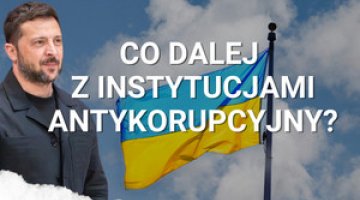Ukraine: ambitious de-Communisation laws
On 9 April, the Parliament of Ukraine adopted four bills on the policy of national memory, which inter alia provide for the extensive de-Communisation of the public space, including by changing all the names of places associated with the Communist regime. They also include opening up access to the archives of the KGB and other Soviet-era departments, the recognition of the honourable nature of participation in the struggle for Ukraine’s independence, including by members of the OUN/UPA (although without granting them combatant status or any other rights), and to stop using the Soviet term ‘Great Patriotic War’ and replace it with the term ‘World War II’. The need to change the names of many streets and towns is sure to cause discontent throughout much of the country; it will also be impossible to carry this step out within the prescribed six-month period.
The adoption of the de-Communisation laws confirms that the current Ukrainian authorities attach great importance to the development of a new policy of national memory, centred on the tradition of fighting for the independence of Ukraine, primarily against Russia. This is part of a programme to create a new, civic national identity, an important part of which is emphasising the separateness of Ukraine’s tradition also during its periods of dependence on Russia, and presenting these periods as enslavement or even occupation. In this tradition, as promoted in this programme, there is space for OUN and the UPA, which are primarily to be treated as anti-Soviet organisations.
The context of the legislation’s passage
Of the four projects discussed, two were presented as government bills, one as an initiative by a group of parliamentarians from different factions, and one as a project by Yuri Shukhevych. However, all the laws were drawn up at the Ukrainian Institute of National Remembrance (UINR) under the leadership of its head Volodymyr Viatrovych, who personally presented two of them to parliament. This confirms the increasing importance of the UINR’s role in the Ukrainian government, and of Viatrovych as one of the main architects of the new policy of national memory.
All the laws were passed, without discussion, by large majorities on both their first and second readings (261-271 votes; the law on the prohibition of totalitarian symbols got 254 of the 226 votes required). It can be regarded as a foregone conclusion that President Petro Poroshenko will sign the bills. One surprise was the last-minute withdrawal of the government bill concerning the fighters for independence, and its replacement with a new bill, also developed by the UINR; this project is significantly different from the original, as it abolished the mandatory award of and social benefits to former combatants.
The significance and possible consequences of the de-Communisation laws
The law on granting access to the archives of the repressive organs of the Communist totalitarian regime in the years 1917-1991 provides for the integration into the UINP of the archival resources of the Soviet authorities during that same period. The current administrators of these files have one year to make a full inventory of the files. This means that free access to the files, and their gradual digitisation and online accessibility, remain matters for the future. These tasks will be very time-consuming and costly, and will also meet with passive resistance from the archives’ current trustees, and it is doubtful that the project will be implemented by the given deadline.
The act on the immortalisation of the victory over Nazism in the Second World War 1939-1945 removes from public circulation the Soviet term ‘Great Patriotic War’, replacing it with the term ‘World War II’; it also establishes a Day of Remembrance and Reconciliation on 8 May, while preserving the Day of Victory over Nazism (9 May) as a national holiday. Retaining the festive nature of the latter day (with a slight alteration to the name) meets the expectations of a significant part of the citizens of Ukraine, and will minimise the possibility of opposition to it.
The law on the legal status and commemoration of fighters for the independence of Ukraine in the twentieth century is essentially a declarative act, and its implementation does not require any further action. This is not a bill of ‘rehabilitation’, and certainly not of ‘exaltation’ for the OUN/UPA: neither group is distinguished in the bill in any way, and they are only listed as two among several other organisations; and its veterans have not been granted either the rights of combatants, or any rights other than acknowledgment that their struggle (on a par with the members of the other organisations mentioned in the act) contributed to the restoration of Ukraine’s independence in 1991. The military ranks and decorations granted by the UPA command have also been recognised. The act is a clear part of the recent trend to acknowledge the tradition of fighting for Ukraine’s independence in general, and the fight of the UPA (primarily against the Soviet Union) in particular. The UINR is the main promoter of this trend. In this context, it is significant that this project was discussed on the parliamentary rostrum by Yuri Shukhevych, the son of the UPA’s leader.
One vague and ambiguous provision of the adopted act, penalising ‘the denial of the legality of the struggle for Ukraine’s independence in the twentieth century’ will be used in future to inhibit any critical reflection on the ‘black books’ of the Ukrainian independence movement, such as the genocide of Poles carried out by the UPA in Volhynia and Eastern Galicia. It seems likely that at some time plans will again be raised to recognise the UPA as ‘a belligerent in World War II’.
The law has met with reluctance and even hostility among those groups who share a Soviet vision of Ukrainian history, who reject not only the traditions of the OUN/UPA, but also the structures and organisations which fought for Ukraine’s independence in the years 1917-1920. The new laws will also be attacked by Moscow and its circles of influence as alleged evidence that Ukraine ‘is becoming fascist’.
It is noteworthy that the government’s original draft of the law contained many elements which were omitted in the approved project as presented by Shukhevich. An extensive preamble was removed which stated, among other things, that the modern Ukrainian state is the legal successor to the Ukrainian People’s Republic proclaimed in 1917, against which Soviet Russia launched its aggression; as was a provision on the compulsory nature of guarantees and social benefits available to former combatants, together with the announcement that these problems would be dealt with in a separate law; more detailed provisions were made relating to liability for denying the tradition of the struggle for independence; and the list of organisations fighting for independence also included the People’s Movement of Ukraine (1989-1991), among others. These differences show that the bill had been the subject of considerable controversies, hitherto unknown to the public, almost up to the last moment. Given the way in which the Ukrainian parliament operates, it cannot be ruled out that the final text of the law will at some points differ from the project which was voted through on 9 April.
The act on the condemnation of the Communist and National Socialist (Nazi) totalitarian regimes, and forbidding their symbolism from being promoted, refers de facto to Communist symbolism alone; there is little evidence of the use of Nazi symbols. This law is the most difficult to implement, and has raised serious public controversy. It provides for not only the removal of thousands of statues of Communist activists, but also the renaming of all the topographic & physiographic objects and institutions bearing such names, from the names of two regions (which will require a change in the constitution), down to individual streets and provincial schools. The number of such objects certainly runs to the hundreds of thousands.
The act puts an end to the Communist Party of Ukraine in its current form by directly prohibiting the use of the name ‘Communist Party’. It will also apply in electoral politics (no Communist deputies were elected in this year’s elections, but the party has representation in various government bodies). On the other hand, this could facilitate the creation of a modern left-wing party in Ukraine.
The provisions of the de-Communisation acts cannot realistically be implemented within the stated time of six months, for reasons of cost, among others. The acts will almost certainly give rise to opposition in many places in the east and south of Ukraine, and to sabotage by local authorities (the law anticipates such a reaction, ordering higher-level authorities to act instead of local authorities if the latter do not act, a move which violates the division of responsibilities between local self-government and the state administration). This will undoubtedly also be an important issue in the campaign for the local elections in October. This may boost support for groups that oppose the de-Communisation of the public space, especially the Opposition Bloc.
This law will also be used by Moscow to try to discredit Ukraine in the international arena as a state which is ‘revising the history of World War II’, ‘rehabilitating supporters of fascism’, ‘making it difficult to find a peaceful solution to the conflict in the Donbas,’ etc.
The short-term political costs of implementing the de-Communisation laws may be rather high for the current government, but the long-term gains for Ukraine, in connection with the consolidation of a new national identity based on the tradition of the struggle for national liberation, and not on a ‘historical commonality’ with Russia, will be much greater.




